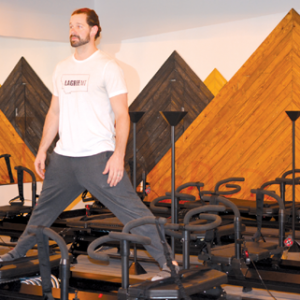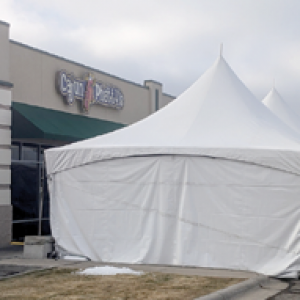By Evelyn Pyburn
After making a number of changes to Project Recode, the Billings City Council passed the new zoning regulations in First Reading by a wide margin last Monday. On December 21, the City Council will take up Project Recode in Second Reading at which time more changes are possible.
A proposed amendment to a regulation that is perceived as especially onerous by casino owners failed to be passed. The amendment would have reduced from 350 –feet to 150 –feet as the distance that casinos must be located from the nearest residence. The new regulation immediately puts almost all 134 casino and bar owners in Billings out of compliance. Also left in place are regulations that will, over time, consolidate casinos into one or two areas in the city. Non-complying businesses are “grandfathered in” until they have to rebuild or remodel for some reason.
Questions about whether the city could “target” casinos in such a manner and whether it was legal was generally dismissed by city planners who pointed out that other cities have implemented similar regulations. City Council members who voted against the amendment said that regulations are being changed because they have been hearing for years from people who want them changed, because they don’t like living so close to casinos, and said council members, during the past weeks they had heard from only a few casino owners who objected.
Said City Councilwoman, Penny Ronning, the presence of casinos is “one of the major issues I have heard about more frequently than most other issues… the frustration that people have with casinos being close to their neighborhood.” Incidents of crime was pointed out by council member Denise Joy as a concern.
With one casino owner pointing out that bars and taverns have a much higher incident of crime associated with them than do casinos, (and that crime around convenience stores is four times higher) he wondered why the distance requirement for bars and casinos is only 150 feet. Mayor Bill Cole expressed his concerns that there is a difference between the two types of businesses, saying he prefers to see consistency in the codes.
The objections are about the risk to casino owners who could lose their business and property values should something happen in which they would have to rebuild and would be denied the ability to do so by city government. The risks also exist for other kinds of non-conforming businesses,
“This simply isn’t fair and is being pursued by a relatively small group,” said casino owner Dennis Benson, “There are thousands of people who go into the casinos.” The regulation, said Benson is not “healthy for the community” …. ”people who go into the casinos are being pushed into the underbelly of the community.”
“I don’t see it as an incredible hardship,” said City Council member, Danny Choriki, calling the objections “fear mongering.” Choriki was later chastised by one casino owner, Josh Benson, for jokingly calling gamblers “sinners.”
Other amendments to Recodes, which fared much better, addressed other issues such as requirements that would have forced new infill building or remodeling, to adhere to the current style of a neighborhood. Builders had said in earlier comments that the requirement could increase costs.
Another successful amendment extended from six months to 12 months a limitation on how much time businesses of non-conforming uses would have to sell or otherwise resume business, at their location, should they temporarily cease operation for some reason. To exceed that time frame would terminate the legality of the non-conforming use.
City Council members Pam Purinton and Frank Ewalt wanted to delay the decision on Project Recode until January 11, but the motion failed. They pointed out that there are a number of issues that have been brought forward that are still unaddressed, most especially the concern from builders that the new codes escalate the cost of building and will adversely impact affordable housing. There are also unaddressed requests for a legal review of the codes.
During the next city council meeting on December 21, the adoption of Project Recode will be considered again in Second Reading, with the possibility of additional amendments.
In earlier emails, builders pointed out many aspects of the codes that they believe will raise costs. For example the requirement to have a back road access to a multi-family development immediately doubles the cost.
Restrictions on building heights eliminate opportunities to gain the most value from available space.
There were questions and confusion about restrictions on the amount of frontage required for residential lots versus multi-family lots and about required sizes of garage doors. “Can you confirm if there will be a maximum garage square footage size, other than the max of 50% total garage door width on the front façade?” asked Brendon Hill of Diverse Construction.
“The 50% limitation in the proposed code applies only to the garage door opening on the front façade of the house. So if your house is 60 feet wide, 30 feet of garage door opening is allowed along the front façade,” replied Nicole Cromwell, Planning Department staff member who oversaw the three and a half-year effort writing the new codes. Cromwell explained on Monday night that she believes the garage door restrictions is a safety measure which will allow the home owner to better see if they accidently left their garage door open or to see the plight of a pedestrian who might fall in front of their house and need assistance.
Bill Hanser, a residential builder, pointed out that one regulation requires side or alley facing driveways, which “adds cost and reduces the available yard space…. adds expense and increase(s) the amount of snow removal for the homeowner.
If safety is the issue, said Pam Purinton, how can a home owner see a garage door off the alley?
Landscaping requirements are also a concern. A landscaping plan is required to be submitted with the building permit and that plan will be binding on successors. This seems to add a significant, hard- to- enforce burden, as well as additional cost to the housing market, said Hanser. Also, many homeowners choose to build sweat equity by doing their own landscaping, allowing them to purchase a property they otherwise would not be able to afford.
Purinton expressed surprise and concern to learn that under Recode the newly built Shiloh Commons would not have been allowed.
Developer of Shiloh Commons, Mike Stock, pointed out in an email that his company, Stock Development, has developed over a hundred million dollars in residential, commercial and multi-family real-estate in Billings over the last several years. “During the project re-code we were never given the opportunity to comment on any of the changes that have been made. Just reviewing the 400+ page document the parking for residential/multi-family has increased over 25%. This is astronomical in development worlds and will have a substantial increase in development costs! As it stands today we will no longer be able to consider Affordable housing or for that matter Housing in general. Costs due to this type of increase could be as much as 2 Million on a 200 unit complex. Stock Development is very energy conscious and all the work we put into making our buildings ENERGY EFFICIENT will be canceled out by the increase parking! 99% of all municipalities across the country are reducing parking codes not increasing them.”
Builders have said that the restrictions make using new kinds of materials and concepts impossible, and push them into building higher priced homes, for which there is a market which they can readily address, but leaves middle class buyers out of the market.
Recode advocates have repeatedly said they want “quality over quantity.”
“Anytime you say quality, you are raising the price,” said one builder.




